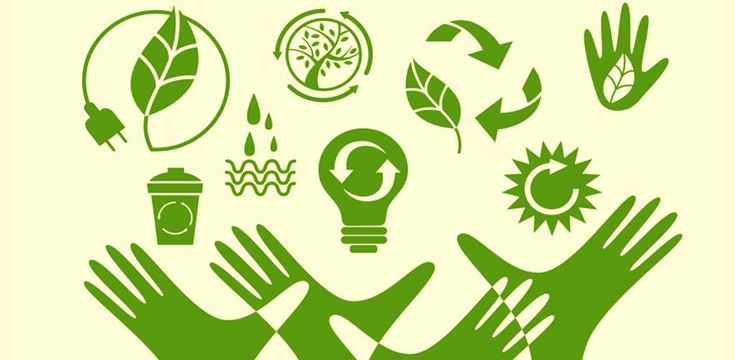![[none]](https://www.crowe.com/om/-/media/crowe/shared/image-library/main-images/right-to-left/ch-asset-533802939_r2l_main.jpg?h=244&iar=0&w=556&rev=-1&hash=D917C98350930EC5976B41C069336908)
Sustainability Reporting
![[none]](https://www.crowe.com/om/-/media/crowe/shared/image-library/main-images/right-to-left/ch-asset-533802939_r2l_main.jpg?h=244&iar=0&w=556&rev=-1&hash=D917C98350930EC5976B41C069336908)
Historically, the primary responsibility of a corporation was to provide a reasonable return on investment to its owners and stockholders. This was measured through financial metrics like profitability and solvency as presented in their financial statements. In the past few decades, a broader view of measuring the non-financial metrics, beyond profits, has emerged that includes Sustainability Reporting. Initially some chemical and mining companies published such reports as a way of countering the negative image that had acquired by their treatment of the environment and of the local communities in which they operated. Today majority of the global corporate houses report on sustainability and in many jurisdictions around the globe, they are mandatory.
What is Sustainability Reporting?
Sustainability Reporting is the practice of measuring and disclosing organizational performance towards the goal of sustainable development and being accountable to internal and external stakeholders. A Sustainability Report should provide a balanced and reasonable representation of the sustainable performance of an organization, including its positive and negative contributions. Sustainability Reporting includes a wide range of topics from ethical business practices to environmental biodiversity. The most common methodology to Sustainability Reporting is the “triple bottom line approach,” which covers the three aspects of sustainability: economic performance, social responsibility and the environmental impact.
Global Initiatives for Sustainability Reporting
Over decades numerous initiatives have been taken worldwide by various organisations on corporate Sustainability Reporting. The European Union issued the EU Non-financial Reporting Directive and is in the process of developing non-financial reporting standards. The World Economic Forum has released its paper on common metrics and consistent reporting for sustainable value creation, defining core metrics.

Sustainability Reporting Standards
The Global Reporting Initiative (GRI), established in 1997, is often referred to as the de facto guideline for Sustainability Reporting. In the USA the Sustainability Accounting Standards Board (SASB) has developed standards for material sustainability issues designed for disclosure in mandatory filings. Additionally, the International Integrated Reporting Council (IIRC) is an entity consisting of international regulators, investors, companies, standards providers, accountants, and non-governmental organisations whose mission is to enable integrated sustainability reporting to become a mainstream practice in both the public and private sectors. The major non-financial reporting organisations (GRI, SASB and IIRC) have published a Statement of Intent, committing to work together towards comprehensive corporate reporting. Recently, momentum has grown behind increased coalescence of the major non-financial reporting standards. Finally, the IFRS (International Financial Reporting Standards) Foundation started to update the Management Commentary Practice Statement that will emphasize the disclosure of factors affecting companies’ prospects over the long term. The Foundation, which is increasingly being encouraged to take a global role in non-financial reporting, issued a consultation to gauge market views on a global standard for sustainability reporting to be set by a body under the Foundation’s umbrella. The Exposure Draft from the consultation is due shortly which has already received strong support from other organizations, including IOSCO (International Organisation of Securities Commissions).
Sustainability Index
Company performance in sustainability reporting is monitored by independent organizations that award “sustainability index” rankings. They are now of considerable influence and are used as guides for environmentally and socially responsible financial investment. The leading indices are Dow Jones Sustainability World Index, Community’s CR Index, FTSE4Good Index, Global Sustainability Index, etc. The Dow Jones Sustainability World Index identifies global sustainability leaders through their Corporate Sustainability Reporting. It is based on a consistent improvement in their strategies for climate change, energy consumption, human resources development, knowledge management, stakeholder relations and corporate governance. The Community’s CR Index ranks companies on their environmental stewardship, their social contributions and the extent to which responsible business practice is integrated into their strategy.
Third party assurance
Sustainability Reporting is a tool for a company to report the economic, environmental and social aspects of what it does and the way it governs itself. But it can also be misused to suggest that a company has an environmental and ethical agenda when in reality little is done – a practice known as “green-washing”. In addition to the self-declaration, reporting organizations can choose to have an independent assurance provider offer an opinion on the self-declaration to increase its credibility.
Our planet faces significant social and environmental challenges from growing economic inequality to climate change to the current pandemic. By doing business in a way that aligns long-term commercial strategies with care for people and the environment, companies can play a crucial role towards sustainable development. Corporate sustainability is not just a buzzword—for many industry leaders and corporations, it has become an invaluable tool for exploring ways to reduce costs, manage risks, create new products, and drive fundamental internal changes in culture and structure. It enhances brand image and the reputation of the company.

